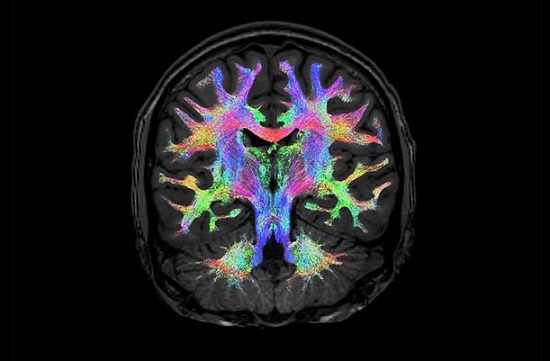Nikhil Prasad Fact checked by:Thailand Medical News Team Jul 22, 2024 1 year, 5 months, 5 days, 16 hours, 2 minutes ago
Mental Health: In an effort to better understand and diagnose mood disorders, researchers have discovered that certain immune molecules, specifically soluble intercellular cell adhesion molecule-1 (sICAM-1) and soluble vascular cell adhesion molecule-1 (sVCAM-1), may play crucial roles. This
Mental Health News delves into the findings from a recent study exploring these molecules in patients with Major Depressive Disorder (MDD) and Bipolar Depression (BD).
 Immune molecules could be key to diagnosing bipolar and unipolar mood disorders
Immune Molecules and Mood Disorders
Immune molecules could be key to diagnosing bipolar and unipolar mood disorders
Immune Molecules and Mood Disorders
A team of scientists from various prestigious institutions, including the Department of Bipolar Disorders at the University Clinical Centre of Serbia and the School of Medicine at the University of Belgrade, conducted a study to investigate the roles of sICAM-1 and sVCAM-1 in differentiating between stages of bipolar and unipolar depression.
Study Design and Participants
The study involved 137 patients diagnosed with either MDD or BD and compared their serum levels of sICAM-1 and sVCAM-1 to those of 73 healthy individuals. The severity of the patients' psychopathology was measured using the Hamilton Depression Rating Scale and Clinical Global Impression Scale. The patients were further classified based on the stage of their disorder using the clinical staging model proposed by Kapczinski et al., which ranges from early-stage (Stage I) to late-stage (Stage IV).
Key Findings
-Differentiation Between MDD and BD
The study found significant differences in the levels of sICAM-1 and sVCAM-1 between patients with MDD and BD. Specifically, sICAM-1 levels were upregulated (higher) in both patient groups compared to healthy controls, while sVCAM-1 levels were downregulated (lower) in patients. Notably, patients with BD had significantly lower levels of sVCAM-1 compared to those with MDD during acute episodes.
-Stage-Specific Differences
The levels of these molecules varied depending on the stage of the disorder. Patients in the early stages of both MDD and BD had sICAM-1 levels similar to healthy controls, whereas those in the late stages had significantly higher levels. Conversely, sVCAM-1 levels were consistently lower in both early and late stages of the disorders compared to healthy individuals. This suggests that sICAM-1 might be associated with the progression of mood disorders, becoming more pronounced as the disease advances.
-Impact of Treatment
After treatment, sICAM-1 levels normalized in most patient groups, except for those in the late stages of bipolar disorder. On the other hand, sVCAM-1 levels normalized only in patients with MDD, remaining significantly lower in patients with BD, even after treatment. This differential response to treatment highlights the potential of these biomarkers in not only diagnosing but also monitoring the treatment response and disease progression in mood disorders.
&nbs
p;
The study’s findings are particularly significant in the context of bipolar disorder, which is often misdiagnosed as unipolar depression due to overlapping depressive symptoms. This misdiagnosis can lead to inappropriate treatment and potentially worsen the patient’s condition. The distinct patterns of sICAM-1 and sVCAM-1 levels in MDD and BD patients provide a potential diagnostic tool that could help clinicians differentiate between these two conditions more accurately.
In patients with acute episodes of BD, the study found a notable decrease in sVCAM-1 levels compared to those with MDD. This decrease in sVCAM-1 was even more pronounced in patients with a family history of BD, suggesting a genetic component to the observed immune changes. Additionally, higher levels of sICAM-1 were associated with more severe depressive symptoms and a longer duration of the disorder, particularly in MDD patients.
The researchers also noted that immune alterations were related to indicators of disease progression in both mood disorders. For instance, a negative correlation was found between sVCAM-1 levels and the number of previous mood episodes, as well as the number of previous inpatient treatments. This indicates that lower levels of sVCAM-1 might be linked to a more severe course of illness with more frequent and intense episodes.
Interestingly, the study also found different post-treatment normalization patterns for these biomarkers between MDD and BD. In MDD patients, both sICAM-1 and sVCAM-1 levels tended to normalize after treatment, suggesting that these biomarkers could be useful in monitoring treatment efficacy. In contrast, sVCAM-1 levels in BD patients remained significantly lower even after treatment, indicating a more persistent immune dysregulation in this group.
Clinical Implications
These findings suggest that measuring sICAM-1 and sVCAM-1 levels could help differentiate between MDD and BD and identify the stage of the disorder. This could lead to more accurate diagnoses and better-targeted treatments. For instance, the persistent low levels of sVCAM-1 in BD patients even after treatment could indicate a need for more aggressive or prolonged treatment strategies in this group.
Future Research Directions
The study highlights the need for further research to understand the exact mechanisms through which these molecules influence mood disorders. Additionally, future studies should investigate other potential biomarkers and explore how these findings can be integrated into clinical practice to improve diagnosis and treatment. Longitudinal studies following patients over time could provide valuable insights into how these biomarkers change with disease progression and treatment.
Conclusion
The study, conducted by researchers from institutions including the University Clinical Centre of Serbia and the University of Belgrade, provides valuable insights into the roles of sICAM-1 and sVCAM-1 in mood disorders. These immune molecules could become vital tools in distinguishing between MDD and BD and determining the stage of these disorders.
The study findings were published in the peer-reviewed journal: Cells.
https://www.mdpi.com/2073-4409/13/14/1213
For the latest
Mental Health News, keep on logging to Thailand Medical News.
Read Also:
https://www.thailandmedical.news/news/mental-health-new-study-provides-insights-into-delayed-bipolar-onset-in-teens-with-depression
https://www.thailandmedical.news/news/french-study-finds-that-natural-killer-cells-play-a-role-in-development-of-bipolar-disorders-findings-relevant-in-covid-19-era
